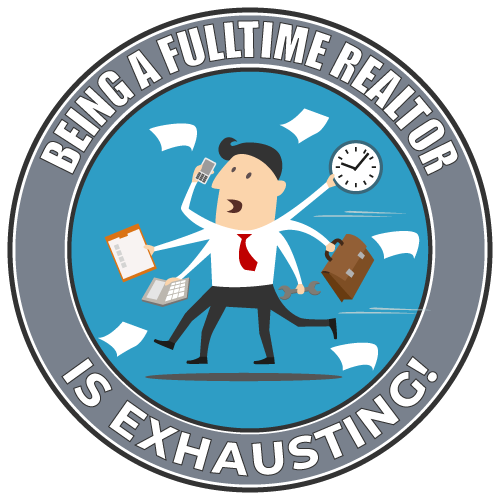
Whether you're looking for a new career or are just in between jobs, getting a Wisconsin real estate license is a great way to earn an income and set your own hours. The industry is a rewarding one with plenty of opportunities, and it offers a lot of flexibility for those who are ready to put their time into it.
Your first step in obtaining your WISCONIN real estate license is to pass the education requirements. These include the 72-hour state exam and the prelicensing training course. This can be done in person, online, or with an approved self-study program.
It takes the average student about two months to complete this course, and if you're able to stick with it, you should have your real estate license in no time. Many students choose to take an online course because it allows them to study at their own pace and work around their home or work schedules.
Students should study their education materials thoroughly and practice the exam. This will help students feel prepared for the actual exam.

After completing the education requirement you can begin applying for your license as a real estate agent through the Department of Safety and Professional Services. The application process includes an initial fee of $75 and a renewal fee of $60 each year. You can submit your application online or by mail with proof of education.
Before you can take the licensing exam, you must pass a background check by submitting a form to the DSPS. The DSPS will check your criminal history to ensure you are eligible to work as a realtor. If you have any convictions, it's best to disclose them at this point so you don't risk having your license denied.
Once you've passed your background check, it's time to apply for your Wisconsin real estate license. You can apply online through the DSPS Online Licensure Application System or by mail, and you'll need to provide your license number, date of birth, and social security number.
If you're already licensed in another state, you may be able to use your current license to get your Wisconsin real estate license. This is known license reciprocity.
Sponsoring brokers can be found to help you with the licensing process. They will also provide support and mentoring. Brokerages that are successful will have an experienced team and staff who are ready to help you succeed in your new career.

How to become a real estate agent in wisconsin
After you've completed your education and passed the state exam, you can apply for your Wisconsin real estate license through a sponsoring broker. A real estate brokerage can help you submit your application, and make sure you meet all licensing requirements.
The real estate industry is a fast-paced and exciting career option, with plenty of potential for growth. It can be expensive. It's important that you find a school that offers flexible and affordable courses if your goal is to learn real estate in Wisconsin.
FAQ
How can I eliminate termites & other insects?
Over time, termites and other pests can take over your home. They can cause severe damage to wooden structures, such as decks and furniture. To prevent this from happening, make sure to hire a professional pest control company to inspect your home regularly.
What's the time frame to get a loan approved?
It depends on many factors like credit score, income, type of loan, etc. It takes approximately 30 days to get a mortgage approved.
What are the most important aspects of buying a house?
The three most important things when buying any kind of home are size, price, or location. It refers specifically to where you wish to live. Price is the price you're willing pay for the property. Size refers the area you need.
Statistics
- This seems to be a more popular trend as the U.S. Census Bureau reports the homeownership rate was around 65% last year. (fortunebuilders.com)
- Over the past year, mortgage rates have hovered between 3.9 and 4.5 percent—a less significant increase. (fortunebuilders.com)
- It's possible to get approved for an FHA loan with a credit score as low as 580 and a down payment of 3.5% or a credit score as low as 500 and a 10% down payment.5 Specialty mortgage loans are loans that don't fit into the conventional or FHA loan categories. (investopedia.com)
- When it came to buying a home in 2015, experts predicted that mortgage rates would surpass five percent, yet interest rates remained below four percent. (fortunebuilders.com)
- Some experts hypothesize that rates will hit five percent by the second half of 2018, but there has been no official confirmation one way or the other. (fortunebuilders.com)
External Links
How To
How to Manage A Rental Property
You can rent out your home to make extra cash, but you need to be careful. These tips will help you manage your rental property and show you the things to consider before renting your home.
Here are the basics to help you start thinking about renting out a home.
-
What do I need to consider first? Take a look at your financial situation before you decide whether you want to rent your house. If you have any debts such as credit card or mortgage bills, you might not be able pay for someone to live in the home while you are away. Your budget should be reviewed - you may not have enough money to cover your monthly expenses like rent, utilities, insurance, and so on. It may not be worth it.
-
How much does it cost for me to rent my house? It is possible to charge a higher price for renting your house if you consider many factors. These include factors such as location, size, condition, and season. It's important to remember that prices vary depending on where you live, so don't expect to get the same rate everywhere. Rightmove estimates that the market average for renting a 1-bedroom flat in London costs around PS1,400 per monthly. This means that if you rent out your entire home, you'd earn around PS2,800 a year. This is a good amount, but you might make significantly less if you let only a portion of your home.
-
Is this worth it? Although there are always risks involved in doing something new, if you can make extra money, why not? It is important to understand your rights and responsibilities before signing anything. Renting your home won't just mean spending more time away from your family; you'll also need to keep up with maintenance costs, pay for repairs and keep the place clean. Before you sign up, make sure to thoroughly consider all of these points.
-
Are there any advantages? You now know the costs of renting out your house and feel confident in its value. Now, think about the benefits. You have many options to rent your house: you can pay off debt, invest in vacations, save for rainy days, or simply relax from the hustle and bustle of your daily life. It is more relaxing than working every hour of the day. You could make renting a part-time job if you plan ahead.
-
How can I find tenants? After you have decided to rent your property, you will need to properly advertise it. Start by listing online using websites like Zoopla and Rightmove. Once potential tenants reach out to you, schedule an interview. This will help you evaluate their suitability as well as ensure that they are financially secure enough to live in your home.
-
How can I make sure that I'm protected? If you fear that your home will be left empty, you need to ensure your home is protected against theft, damage, or fire. You'll need to insure your home, which you can do either through your landlord or directly with an insurer. Your landlord will typically require you to add them in as additional insured. This covers damages to your property that occur while you aren't there. This doesn't apply to if you live abroad or if the landlord isn’t registered with UK insurances. You will need to register with an International Insurer in this instance.
-
Sometimes it can feel as though you don’t have the money to spend all day looking at tenants, especially if there are no other jobs. But it's crucial that you put your best foot forward when advertising your property. A professional-looking website is essential. You can also post ads online in local newspapers or magazines. Additionally, you'll need to fill out an application and provide references. Some prefer to do it all themselves. Others hire agents to help with the paperwork. You'll need to be ready to answer questions during interviews.
-
What should I do after I have found my tenant? If you have a lease in place, you'll need to inform your tenant of changes, such as moving dates. If you don't have a lease, you can negotiate length of stay, deposit, or other details. It's important to remember that while you may get paid once the tenancy is complete, you still need to pay for things like utilities, so don't forget to factor this into your budget.
-
How do I collect rent? When it comes to collecting the rent, you will need to confirm that the tenant has made their payments. If not, you'll need to remind them of their obligations. You can deduct any outstanding payments from future rents before sending them a final bill. If you are having difficulty finding your tenant, you can always contact the police. They won't normally evict someone unless there's been a breach of contract, but they can issue a warrant if necessary.
-
How can I avoid problems? While renting out your home can be lucrative, it's important to keep yourself safe. Make sure you have carbon monoxide detectors installed and security cameras installed. You should also check that your neighbors' permissions allow you to leave your property unlocked at night and that you have adequate insurance. Finally, you should never let strangers into your house, even if they say they're moving in next door.